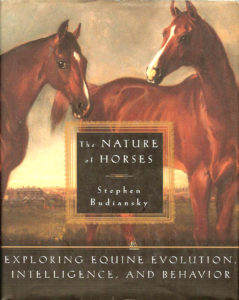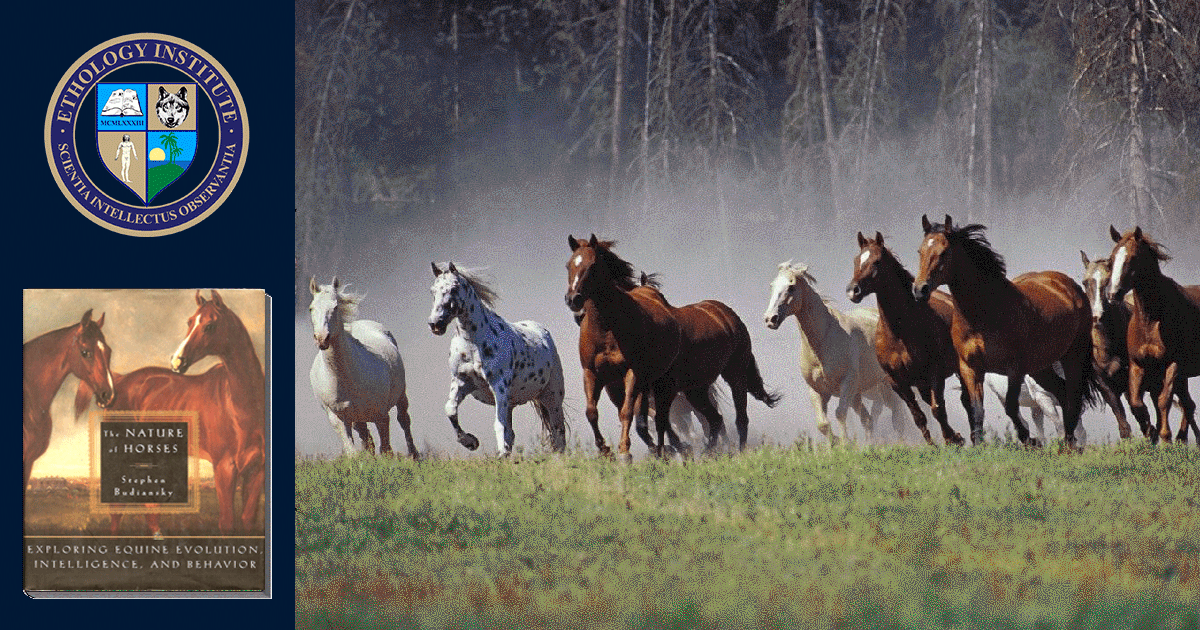Course Description
Equine Behavior studies the behavior of the horse and in particular its social behavior, senses, how it apprehends the world, and its ability to solve problems. It’s an essential course for everyone dealing with horses. CACE students continuing their studies to earn the CAAE diploma will find it challenging to work with a new species which requires a slightly different approach as to the application of the learning principles.
Course Level
Beginner. This course is an introduction to equine behavior and learning.
Course Textbook
“The Nature of Horses: Exploring Equine Evolution, Intelligence, and Behavior”
by Stephen Budiansky.
Horses have a shared history with humans going back millennia to their domestication around 4000 B.C. Yet only in very recent years have scientists begun to study this remarkable animal. Modern scientific research is beginning to explain long-standing mysteries about the true nature of the horse. How well can horses see? How intelligent are they compared to other animals, and are some breeds smarter than others? Does nature or nurture matter more in creating a great sports horse? What causes cribbing and other vices? In this beautifully illustrated, compelling narrative, Budiansky tells the story of the origins, behavior, intelligence, and language of the horse.
Book contents
Chapter 1 The Improbability of the Horse
Chapter 2 From the Brink of Oblivion
Chapter 3 Equine Nature, Human Nature
Chapter 4 Socioecology
Chapter 5 Seeing and Perceiving
Chapter 6 Horse Talk
Chapter 7 Horse Sense
Chapter 8 The Mechanisms of Movement
Chapter 9 Assume a Spherical Horse
Chapter 10 Nature or Nurture
Conclusion The Fate of the Horse
“The Nature of Horses: Exploring Equine Evolution, Intelligence, and Behavior” by Stephen Budiansky.

Supplementary Literature
Although not mandatory, we recommend that you supplement your readings with:
- Darwin, C. (1859) On the origin of species by means of natural selection, or the preservation of favoured races in the struggle for life. London: John Murray. 1st ed.
- Dawkins, R. (2006) The Selfish Gene. Oxford University Press, USA.
- McFarland, D. (1982) The Oxford Companion to Animal Behaviour. Oxford University Press, Oxford.
- McFarland, D. (1998) Animal Behaviour. Benjamin Cummings. 3rd ed.
Online Studying and Tutoring
Watch the movie(s) and read the book(s). Join the course forum where you can read our tutors’ answers to questions previously posed by your colleagues. If you have a new question, do not hesitate in posting it.
The course forum is solely for academic questions. For administrative matters or difficulties accessing the functionality of the site, please submit a ticket.
Once you’re ready for it, take the quizzes. You may take a quiz as many times as you like. We recommend you re-take quizzes once a year as a self-imposed quality control.

